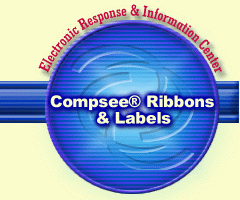
Media Training1. What is a Thermal Transfer Ribbon? A thermal transfer ribbon is a polyester film that is coated with carbon based inks. Formulations are available in wax, midrange (wax/resin), or resin formulations. Our thermal transfer ribbons contain a PRINTHEAD SAVER backcoating that provides heat protection, lubrication and static/stick resistance to lengthen printhead life. PRINTHEAD SAVER ribbons (Advent) are made with a high energy backcoating that lets you print at lower temperatures and therefore extend printhead life. This backcoating comes in direct contact with the printhead. The ribbon material (film) is wound around a fiber or plastic core and the ribbon melts on contact with energized matrix printhead wires. A printout on paper or synthetic materials results from the transfer of the melted ink coating. 2. How it Works? Thermal transfer printing is a process that requires a thermal transfer printer, ribbons, software and a substrate (i.e. label or tag stock). Each printer uses a self-contained printhead. A printhead consists of up to 600 micro hot spots per inch. These hot spots are actually energized matrix print head wires. As the ribbon passes between the printhead and the substrate, the wires are turned on and off to melt the ink off of the polyester coating to transfer the image onto the substrate or media. 3. Why Thermal Transfer Printing?
|
top
Home | The Company | Systems Solutions | Products & Pricing
Software & Support | Reseller Resources | Contact Compsee